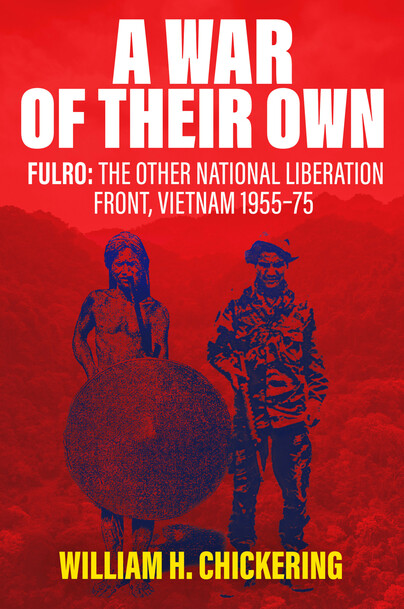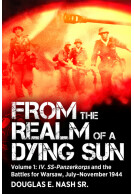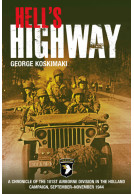A War of Their Own (Hardback)
FULRO: The Other National Liberation Front, Vietnam 1955–75
Imprint: Casemate Publishers
Pages: 264
Illustrations: 26 photos and 3 maps
ISBN: 9781636245607
Published: 25th March 2025
Pages: 264
Illustrations: 26 photos and 3 maps
ISBN: 9781636245607
Published: 25th March 2025
You'll be £26.36 closer to your next £10.00 credit when you purchase A War of Their Own. What's this?
+£4.99 UK Delivery or free UK delivery if order is over £40
(click here for international delivery rates)
Need a currency converter? Check XE.com for live rates
(click here for international delivery rates)
Need a currency converter? Check XE.com for live rates
In Vietnam, in 1967, William Chickering commanded a Mike Force battalion of Montagnards, highland tribesmen who were also members of a secret army, FULRO, whose aim was to rid the highlands of all Vietnamese, both communist and non-communist. Fighting for land and dignity, they saw the Vietnamese as colonialists and themselves as revolutionaries. For a while, FULRO appeared capable of changing the course of the war. Then, inexplicably, it faded away.
Chickering’s quest to understand FULRO took him to Phnom Penh in 1973, where he found five of the six leaders, the sixth having been mysteriously murdered. He was unable to discern the truth behind their political smoke. Two years later, 150 of them—men, women, and children—took refuge in the French Embassy as the city fell but were expelled into the hands of the Khmer Rouge. Among them was the family of Bhan, one of the leaders. In the United States at the time of the fall, Bhan and Chickering tried to learn their fate, but Cambodia had become a tomb.
In 1986, Bhan headed out into the world to learn for himself. He resurfaced in Cambodia 22 years later, after an extraordinary odyssey, never having found them. Had they and the rest of the FULRO Montagnards been executed, or could they still be alive somewhere in the hinterlands? Determined to learn the truth, Chickering moved to Phnom Penh. His research led him to the widow of a Cambodian Cham widely assumed to have been FULRO’s puppeteer and eventually to FULRO’s secret papers. From these he was able to piece together why FULRO faded away and how that was connected to its one last heroic shot in 1965 to win a country of the Montagnards’ own.
This extraordinary account corrects history’s assumption that Vietnam’s Montagnards were only pawns, revealing how an ideology of their own—ethnonationalism—gave them the agency to create an army and clandestine movement that kept Hanoi, Saigon, and Washington guessing.
Other titles in Casemate Publishers...















